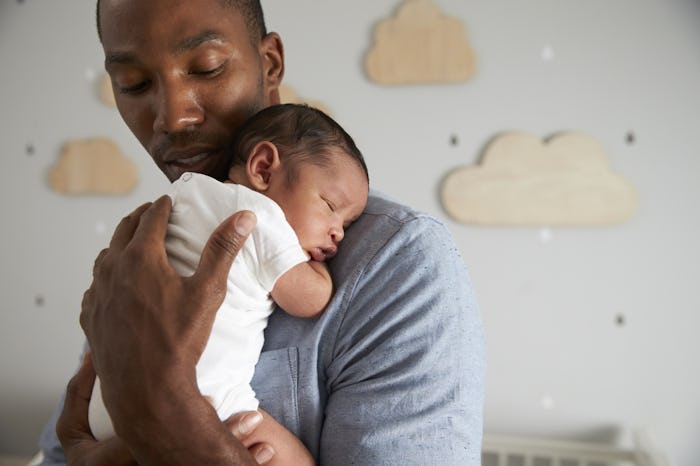Life

How To Get Your Baby On A Sleep Schedule
Long ago, the word "schedule" made me feel slightly suffocated. So, as I started to prepare for parenting, I proudly declared I would never put my baby on a schedule of any kind. What I didn't yet know what was if you can figure out how to get your baby on a sleep schedule, your life is going get easier and your baby will be happier (and, by default, so will you). As it turns out, as much as I liked the timeline-less freedom, my baby wanted a predictable day with adequate time to snooze.
Knowing what's coming next is comforting for little ones, especially when it comes to daily needs like eating and sleeping. But in order to have your whole day humming along like a custom Ferrari, you need to have a sleep plan secured and implemented. As pediatrician Dr Tanya Remer Altmann told Baby Center, "the bedtime routine is the most important thing to consider when establishing a schedule," which means this is where you want to start when creating a new daily itinerary. Once a solid bedtime is established, you can figure out naps. So what's the first step?
First, you'll want to make sure your child is the right age to benefit from a sleep schedule. According to Parents magazine, babies respond to a sleep routine between 6 to 8 weeks old, so chances are starting before this won't yield the best results. Once your child is old enough, you will want to start looking for cues from her to gauge the right bedtime. Heavy eyelids, yawning, back arching, fussing, and crying all are signs that your baby is ready for some shut eye, according to Kidspot. Make note of the time you see your baby begin to display these signs to get an idea of when her bedtime and naps should take place.
After you've chosen sleep times, create routines to accompany these times of day to help your baby prepare for drifting into dreamland. "A routine lets your baby know that there's an order to bedtime — and encourages her to fall asleep like clockwork," according to What To Expect. Being consistent with your routine and sleep times are most effective, but note that certain developmental milestones can cause changes in sleep patterns, so always be prepared to make minor adjustments to the sleep schedule and be flexible as time goes on, as Baby Sleep Site recommended.
Getting your baby on a sleep schedule should happen somewhat organically since you are simply watching for the times of day baby gets sleepy and then getting her to bed accordingly. Once this new rhythm comes into your life, you'll notice more control over your days and more peace surrounding your baby's sleep.